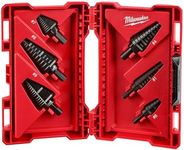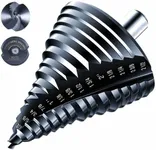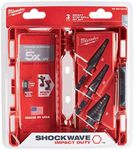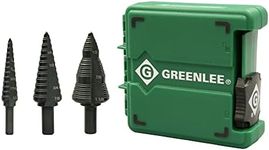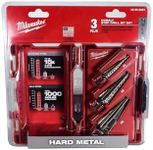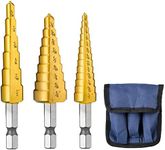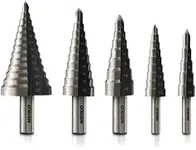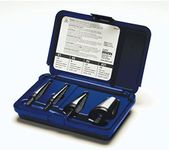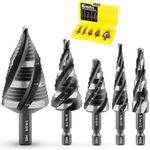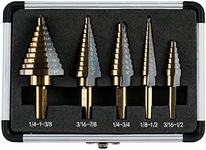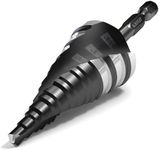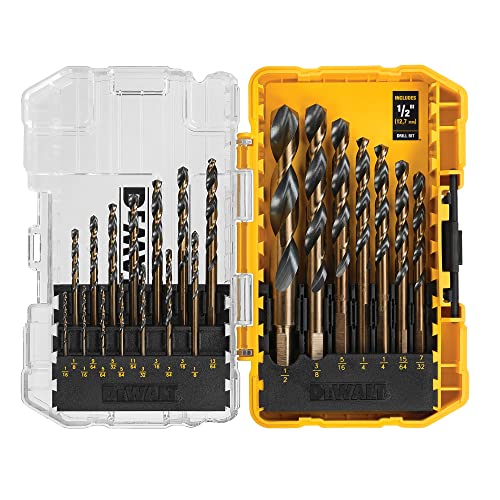Buying Guide for the Best Step Drill Bits
Step drill bits are essential tools for anyone who needs to drill holes of various sizes in materials like metal, plastic, or wood. They are particularly useful for tasks that require precision and versatility, such as electrical work, plumbing, or DIY projects. When choosing the right step drill bit, it's important to consider several key specifications to ensure you get the best performance and durability for your needs.MaterialThe material of the step drill bit is crucial because it determines the bit's durability and effectiveness. Common materials include high-speed steel (HSS), cobalt, and titanium-coated bits. HSS is suitable for general-purpose drilling in softer materials. Cobalt bits are more durable and can handle harder materials like stainless steel. Titanium-coated bits offer a balance of durability and performance, making them ideal for frequent use. Choose the material based on the type of material you will be drilling most often.
Size RangeStep drill bits come with different size ranges, indicating the range of hole diameters they can create. This is important because it determines the versatility of the bit. A bit with a wide size range can handle more tasks, reducing the need for multiple bits. For general use, a bit with a size range from 1/8 inch to 1/2 inch is often sufficient. For more specialized tasks, you might need a bit with a larger or smaller range. Consider the typical sizes of holes you need to drill and choose a bit that covers those sizes.
Number of StepsThe number of steps on a step drill bit refers to the number of incremental sizes the bit can drill. More steps mean more precision and versatility, as you can create holes of various sizes without changing bits. However, more steps can also mean a longer bit, which might be less convenient in tight spaces. For general use, a bit with 10-15 steps is usually adequate. If you need more precision or versatility, look for bits with more steps. Consider the range of hole sizes you need and the space you have to work in when choosing the number of steps.
Shank TypeThe shank type of a step drill bit affects how it fits into your drill and how securely it stays in place. Common shank types include round, hex, and tri-flat. Round shanks are standard and fit most drills, but they can slip under heavy use. Hex shanks provide a more secure fit and are less likely to slip, making them ideal for high-torque applications. Tri-flat shanks offer the best grip and are designed for heavy-duty use. Choose the shank type based on the type of drill you have and the intensity of the tasks you will be performing.
CoatingThe coating on a step drill bit can enhance its performance and longevity. Common coatings include black oxide, titanium nitride, and cobalt. Black oxide provides basic protection against rust and wear. Titanium nitride offers better durability and reduces friction, making it suitable for frequent use. Cobalt coatings are the most durable and are ideal for drilling hard materials. Choose a coating based on how often you will use the bit and the types of materials you will be drilling.
